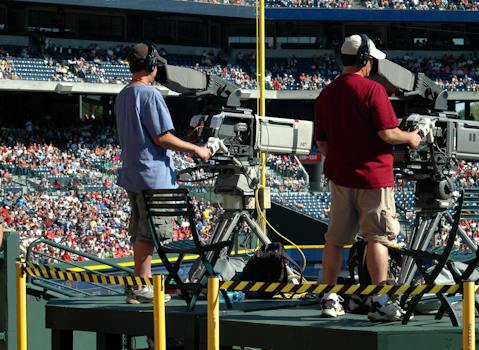

-
Table of Contents
The Heart and Soul of Football: Where passion meets the pitch.
Introduction
The Heart and Soul of Football: An Introduction
Football, also known as soccer in some parts of the world, is a sport that has captured the hearts and souls of millions of people worldwide. It is a game that transcends borders, cultures, and languages, bringing people together in a shared passion for the beautiful game. The heart and soul of football lie in its ability to evoke emotions, create unforgettable moments, and unite communities like no other sport can. From the roar of the crowd to the skillful displays on the pitch, football embodies the essence of competition, teamwork, and the pursuit of excellence. In this introduction, we will explore the key elements that make football the heart and soul of sports, captivating fans and players alike.
The Evolution of Football: From its Origins to Modern Day
The Evolution of Football: From its Origins to Modern Day
Football, a sport that has captured the hearts of millions around the world, has a rich and fascinating history. From its humble beginnings to the modern-day spectacle it has become, the evolution of football is a testament to the enduring passion and love for the game.
The origins of football can be traced back to ancient civilizations, where various forms of the game were played. In ancient China, a game called Cuju was played, which involved kicking a ball through a small opening. Similarly, the Greeks and Romans had their own versions of the game, known as Episkyros and Harpastum, respectively. These early forms of football laid the foundation for the sport we know today.
However, it was in medieval Europe that football truly began to take shape. The game was played in villages and towns, often with little regard for rules or regulations. It was a rough and chaotic affair, with large numbers of players and few restrictions on physical contact. The objective was simple: get the ball into the opposing team's goal. This early version of football was a far cry from the organized and structured game we see today.
As the centuries passed, football began to evolve. In the 19th century, the game underwent a significant transformation in England. The establishment of the Football Association in 1863 marked a turning point in the sport's history. The association introduced standardized rules and regulations, bringing a sense of order and structure to the game. This marked the birth of modern football as we know it.
The introduction of rules and regulations led to the establishment of organized leagues and competitions. The first official football league, the English Football League, was formed in 1888. This marked the beginning of a new era for football, with teams competing against each other in a structured and organized manner. The popularity of the sport soared, and football became a national obsession in England.
The 20th century saw further advancements in the game. The introduction of professional football allowed players to dedicate themselves full-time to the sport, leading to a higher level of skill and athleticism. The World Cup, first held in 1930, became the pinnacle of international football, showcasing the best teams and players from around the world.
In recent years, football has continued to evolve and adapt to the changing times. Technological advancements have revolutionized the way the game is played and officiated. The introduction of video assistant referees (VAR) has brought a new level of accuracy and fairness to decision-making. Additionally, advancements in sports science and training methods have allowed players to reach new heights of physical fitness and performance.
Football has also become a global phenomenon, with fans and players from all corners of the world coming together to celebrate the beautiful game. The sport has transcended cultural and geographical boundaries, uniting people in their love for football. The World Cup, the UEFA Champions League, and other international competitions have become showcases for the best talent in the world, captivating audiences and inspiring future generations of players.
In conclusion, the evolution of football from its origins to modern-day is a testament to the enduring passion and love for the game. From ancient civilizations to medieval Europe and the establishment of organized leagues, football has come a long way. The sport continues to evolve and adapt, embracing new technologies and reaching new heights of popularity. Football truly is the heart and soul of the game, captivating fans and players alike with its beauty and excitement.
The Impact of Football on Society: Uniting Communities and Inspiring Change

The Impact of Football on Society: Uniting Communities and Inspiring Change
Football, often referred to as the beautiful game, has a profound impact on society. Beyond the thrill of the game itself, football has the power to unite communities and inspire change. From local neighborhoods to global stages, this sport has the ability to bring people together, transcending boundaries and fostering a sense of belonging.
One of the most remarkable aspects of football is its ability to unite communities. In cities and towns around the world, football clubs serve as a rallying point for residents, creating a shared identity and a sense of pride. Whether it's a local team competing in a small league or a world-renowned club playing in a prestigious tournament, the support and passion of fans can be seen and felt throughout the community.
Football matches become a gathering place for people from all walks of life. Regardless of age, gender, or social status, fans come together to cheer on their team, creating an atmosphere of camaraderie and togetherness. In these moments, differences are set aside, and a common love for the game unites individuals who may otherwise have little in common. The shared experience of celebrating victories and enduring defeats fosters a sense of belonging and strengthens the social fabric of communities.
Moreover, football has the power to inspire change. Athletes and clubs often use their platform to raise awareness and advocate for important social issues. From campaigns against racism and discrimination to initiatives promoting gender equality and inclusivity, football has become a catalyst for positive change.
Football clubs and players have the ability to reach millions of people, and they use this influence to address societal challenges. By speaking out and taking action, they encourage fans and followers to join the cause, creating a ripple effect that can lead to real change. Through their actions, football stars become role models, inspiring others to use their own platforms to make a difference in their communities.
In addition to inspiring change, football also serves as a powerful tool for social integration. In many countries, the sport has been used as a means to bridge divides and promote understanding between different cultures and ethnicities. Football clubs often have players from diverse backgrounds, and their presence on the field sends a powerful message of unity and acceptance.
Football tournaments and events bring people from different nations together, fostering a spirit of international cooperation and friendship. The World Cup, for example, is a global celebration that transcends borders and unites fans from all corners of the globe. In these moments, football becomes a language that everyone understands, breaking down barriers and promoting a sense of global citizenship.
In conclusion, football's impact on society goes far beyond the game itself. It has the power to unite communities, inspire change, and promote social integration. Through the shared love for the sport, individuals from all walks of life come together, creating a sense of belonging and fostering a spirit of togetherness. Football clubs and players use their influence to advocate for important social issues, encouraging others to join the cause. Moreover, football serves as a powerful tool for social integration, bridging divides and promoting understanding between different cultures. The heart and soul of football lie in its ability to bring people together, transcending boundaries and inspiring a sense of unity that extends far beyond the pitch.
The Emotional Connection: Exploring the Passion and Love for the Game
The game of football is more than just a sport. It is a way of life for millions of people around the world. The emotional connection that fans have with the game is unparalleled, and it is this passion and love for football that truly makes it the heart and soul of the sport.
Football has the power to evoke a wide range of emotions in its fans. From the excitement and anticipation before a match to the elation of scoring a goal, and even the heartbreak of defeat, football has the ability to make people feel alive. It is this rollercoaster of emotions that keeps fans coming back for more, season after season.
One of the reasons why football has such a strong emotional connection with its fans is because it is a game that is deeply rooted in tradition and history. Many fans have grown up watching their favorite teams play, and they have developed a deep sense of loyalty and attachment to their club. The colors, the chants, and the rituals associated with football become a part of their identity, and they feel a sense of belonging when they are in the stadium, surrounded by fellow supporters.
The emotional connection that fans have with football is also fueled by the sense of community that the sport creates. Football has the power to bring people together, regardless of their background or social status. In the stadium, fans from all walks of life come together to support their team, united by their love for the game. The shared experience of watching a match, celebrating a goal, or commiserating a defeat creates a bond between fans that is hard to replicate in any other setting.
Furthermore, football has the ability to transcend language and cultural barriers. It is a universal language that can be understood and appreciated by people from all corners of the globe. When a goal is scored, the roar of the crowd is the same, whether you are in Brazil, England, or Japan. This shared experience creates a sense of connection and belonging that goes beyond words.
The emotional connection that fans have with football is not limited to the 90 minutes on the pitch. It extends beyond the game itself and into the lives of the fans. Football becomes a part of their daily conversations, their social interactions, and even their dreams. The highs and lows of their team's performance can have a profound impact on their mood and overall well-being.
In conclusion, the emotional connection that fans have with football is what truly makes it the heart and soul of the sport. The passion and love that fans have for the game is unparalleled, and it is this emotional connection that keeps them coming back for more. Football has the power to evoke a wide range of emotions, create a sense of community, transcend language barriers, and become a part of fans' daily lives. It is this emotional connection that makes football more than just a sport, but a way of life.
Q&A
1. What is the heart and soul of football?
The heart and soul of football is the passion and love for the game, the camaraderie among teammates, and the dedication and hard work required to succeed.
2. Why is the heart and soul of football important?
The heart and soul of football is important because it brings people together, fosters teamwork and discipline, and teaches valuable life lessons such as perseverance, sportsmanship, and resilience.
3. How does the heart and soul of football impact players and fans?
The heart and soul of football impacts players by instilling a sense of pride, purpose, and personal growth. For fans, it creates a sense of community, excitement, and emotional connection to the sport and their favorite teams.
Conclusion
The heart and soul of football lies in its ability to bring people together, create a sense of community, and ignite passion and emotion. It is a sport that transcends boundaries, cultures, and languages, uniting fans from all walks of life. The game itself is a beautiful blend of skill, strategy, and athleticism, captivating millions around the world. Football has the power to inspire, to uplift, and to create lasting memories. It is more than just a game; it is a symbol of unity, camaraderie, and the indomitable human spirit.










